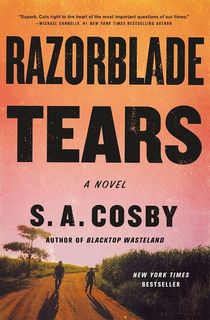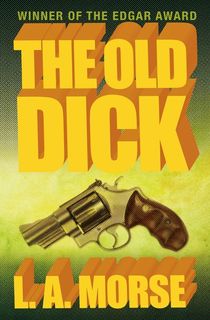Some people say that the first impression is the last impression. When you meet new people, you only have one chance to make an introduction. The same is true about books!
There are some readers that give books until the end of the first chapter to hook their interest. Some tighten that to the end of the first page. However, if a book doesn't make it impossible for you to stop after the first sentence, is it really doing its job?
For as densely packed with intrigue as mystery books are, it's imperative for authors to get off to a strong start. Readers have to care about something, whether it's the victim, the killer, or the detective unraveling the case. So which books do the best job? Here are eight of the best opening lines in mystery books!
"Ike tried to remember a time when men with badges coming to his door early in the morning brought anything other than heartache and misery, but try as he might, nothing came to mind.”

Razorblade Tears
This is a powerful line that immediately gives readers a sinking feeling. It gives the backstory of a troubled past, and promises far more trouble to come, all while establishing an undercurrent of racial tensions.
"Duke Pachinko lay propped against the wall, a dripping red sponge where his face used to be."

The Old Dick
In a handful of words, the tone of the novel is artfully set. Readers understand that there will be no punches pulled, and they're in for a visceral and gritty ride—with no shortage of violence.
"Eunice Parchman killed the Coverdale family because she could not read or write."

A Judgement in Stone
Talk about an opening that leaves you wanting more. It's a bold move to deliver the identity of the book's killer from the get-go, yet readers are left wondering how the drama could develop, especially with such an interesting spin on motive.
"She was ten years old, but knew enough to wipe clean the handle of the bloody kitchen knife."

A Bitter Taste
Children are easy characters to feel immediate empathy for, so a book hitting the ground running with such a chilling scene is a brilliant move. The set up lures readers right into the next sentence, paragraph, page, chapter, and so on. Why would a child kill? And what will become of her?
"It was the bright yellow tape that finally convinced me my sister was dead."

The Damage Done
This opener delivers a swift kick to the gut. A well-known step in the cycle of grief, denial is a powerful thing. To have hope torn away in the very first sentence promises a wild emotional ride.
“Who is there who has not felt a sudden startled pang at reliving an old experience, or feeling an old emotion?
‘I have done this before . . .’
Why do those words always move one so profoundly?
That was the question I asked myself as I sat in the train watching the flat Essex landscape outside.”

Curtain: Poirot's Last Case
Deja vu is a powerful experience, especially when tied to strong emotions. Paired with the fact that the title announces this is Poirot's last investigation, it's impossible to not be overcome by some amount of wistfulness. Saying goodbye is never easy, especially when it involves an icon.
"Death is my beat."

The Poet (Jack McEvoy #1)
Sometimes brevity is all the more affecting. To place "death" in a sentence so casual and brief is to imply a sense of detachment. Readers may come to expect our protagonist will soon come to find that detachment isn't always easy, and when the feelings hit you, they hit hard.
"Even on the night she died, Rose Shepherd couldn’t sleep."

Scared to Live
Most of the time, there's a reason someone can't fall asleep. This opener draws readers in with a compelling concept: someone whose life was probably as tumultuous as their murder.





